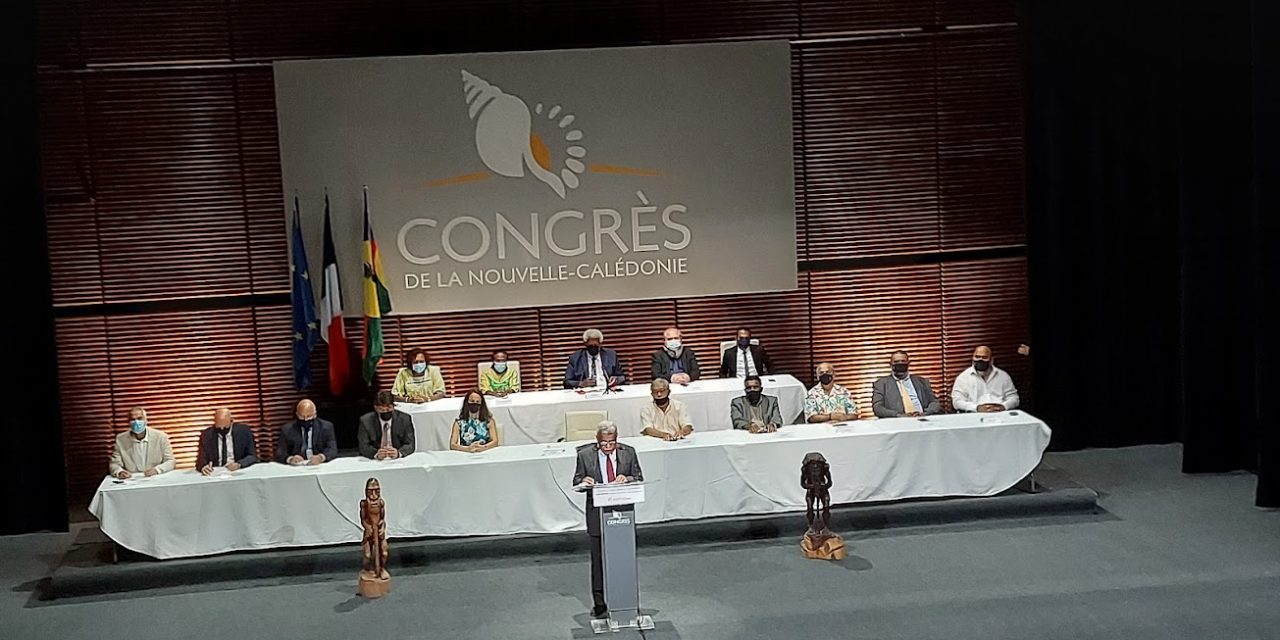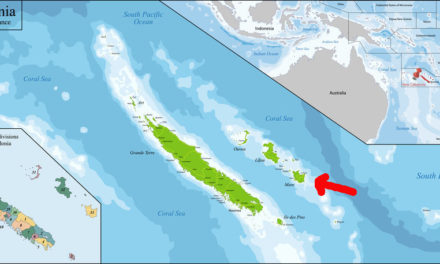Two weeks before the third and final referendum on independence, Louis Mapou, the President of the 17th government of New Caledonia, delivered his general policy statement on Thursday, November 25, 2021, at the Tjibaou Cultural Center in Nouméa. An historical moment for many reasons.
Premieres
It’s the first time that a general policy statement has been delivered in this place, named after Jean-Marie Tjibaou, a man and political figure whose life and action have remained intimately linked to New Caledonia’s recent history.
It’s also the first time that an independentist leader presides the collegiate government, a unique institution in the French Republic, created under the Nouméa Accord on May 5, 1998.
And finally, this 17th government of New Caledonia is likely the last of the Nouméa Accord.
Growth and inequalities
The Nouméa Accord, which extended the principle of rebalancing established in the Matignon Accord of 1988 (with the training of Caledonian executives but also an economic rebalancing between the three provinces, notably marked by the creation of a nickel factory and infrastructures in the North province), has been a period of extraordinary growth for the territory.
But these three decades have also seen the disparities in inequality or wealth widen. « I said it, I repeat it, between the poorest and the richest in France, ratio of 1 to 4, here, it’s 1 to 10 », had underlined Sébastien Lecornu, French Minister of the Overseas, in Nouméa, on October 18 th, just before leaving New Caledonia for mainland France.
“ Bond of belonging”
In his general policy statement, President Louis Mapou thus made the fight against inequalities the « Great cause » of his mandate. « Inequalities are everywhere, he said: at school, at work, in access to housing, in front of the store stall, in the exercise of custom. The Covid-19 health crisis has reaffirmed its acuteness. »
This fight against inequalities is a prerequisite for all communities living together, which involves building everyone’s « bond of belonging » to New Caledonia.
A country for everyone
« There is a place for everyone in New Caledonia. For the Kanak people, but also for all those who have arrived since then, » said President Mapou. Who believes that « the various claims of legitimacy formulated towards New Caledonia must now give way to a process of responsibility which transcends them, that of participating in the construction of the central pole – refering to the kanak hut – of a new New Caledonia which is at the rendezvous of its history. But we must beware of any political, ideological or cultural approach which advocates the dilution of one identity into another and which creates a nest of institutional instabilities. »
In his speech, Louis Mapou added that the government intends to « support the process of historical and identity appropriation initiated by valuing the contribution of all communities to history, identity and culture, to strengthen the central pole from New Caledonia ».
In addition, after the most serious health crisis that the country has ever known, with more than 12,000 positive cases of Covid-19 and 276 deaths, the President of the 17th government presented emergency measures concerning the control of the functioning expenditure of New Caledonia and its public establishments. As well as a recovery plan for New Caledonia’s economic activity, driven by the determination of a true ecological transition.
More Pacific and a new relationship with France
Finally, President Mapou spoke of New Caledonia’s desire for greater integration into the Pacific region, as well as its « historical, cultural and linguistic » relationship with France.
« It is quite natural that this cooperation in the Pacific evolves and is strengthened », affirmed Louis Mapou, before calling for « to engage with the French State, very quickly, a discussion on all the subjects on which it is necessary to renovate the sharing of skills with New Caledonia ».
This general policy statement by President Mapou is part of a period that goes until June 2024, ending date of the provincial mandate in New Caledonia.





